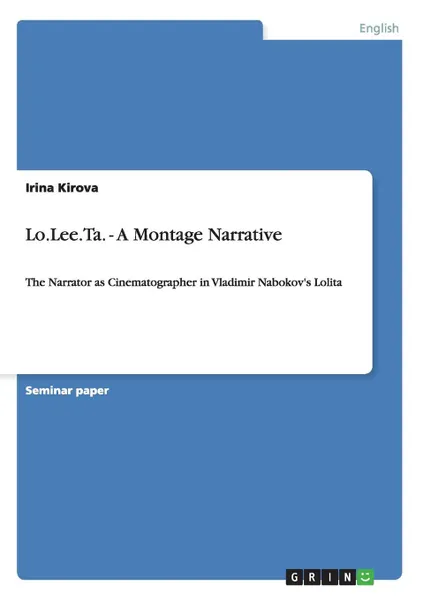Lo.Lee.Ta. - A Montage Narrative 12+
Автор: Irina Kirova
36 страниц
Категория: Энциклопедии, справочники
ISBN: 9783656353287
Язык: Английский
📖 Seminar paper from the year 2012 in the subject English Language and Literature Studies - Literature, grade: 1,3, Humboldt-University of Berlin (Anglistik und Amerikanistik), course: HS Vladimir Nabokov, language: English, abstract: In an experiment, Russian film maker and film theorist Lev Kuleshov edited together a short film in which a shot of the actor Ivan Mosjoukine was combined with various other shots, among them a bowl of soup, a woman, and shot of a child in a coffin. The film was shown to an audience who believed the actor expressed different emotions with each situation, when in fact, the footage of Mosjoukine was the same shot repeated over and over again. Even though, Mosjoukine did not see the shots, and hence, could not react to either of them, the viewers were convinced to witness the adequate emotions. Thus, the viewer filled in the blanks and saw the expression, although there was none.The impact of this experiment was called the Kuleshov effect. It illustrates the significance of film editing as well as the importance of the viewer. The Kuleshov effect brings together the thought of the cinematographer and the idea the viewer creates in his own mind. The result of this co-production is a whole new meaning that can refer to something that was denoted before, but can also be unrelated to it. Vladimir Nabokov's Lolita manifests a lively dialogue between literature and cinema. But how and to what extent has montage philosophy influenced this work? In the f...
Мнения
